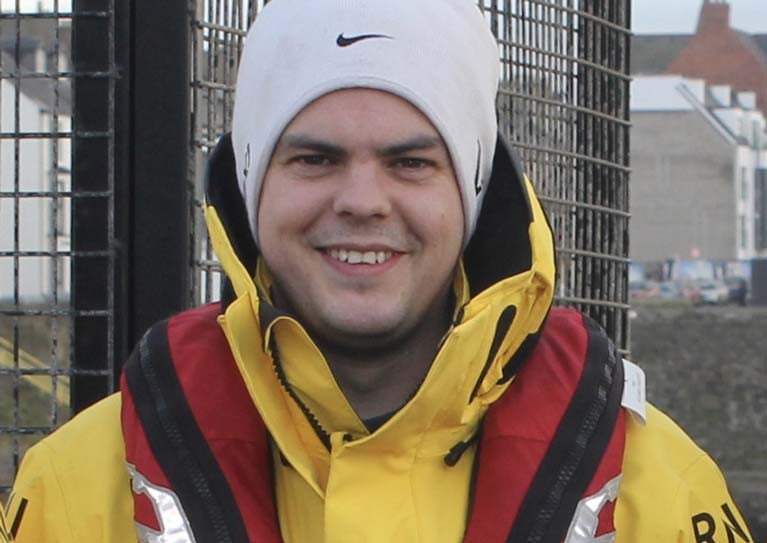Portrush RNLI has appointed a new Coxswain/Mechanic to replace the recently retired Anthony Chambers. Dave Robinson has been a popular volunteer crew member at the station for seven years and was successful at interview in February 2020.
Dave (aged 27) was recently employed with the Merchant Navy in the North Sea and is delighted to have a job with the RNLI which combines his love of the Lifeboat and being based permanently at home. His fiancée, Livvy is also delighted as the pair are getting married in May this year and have recently bought a house in Portrush.
Dave’s responsibilities will include looking after and maintaining the two Lifeboats at Portrush- The Severn and the D class, as well as making sure all PPE is in order and ensuring all equipment is fit for purpose. He will be a key member of the Operations Team, working closely with the Lifeboat Operations Manager, Deputy Launching Authorities and the other volunteer coxswains on station.
Dave said:- This is a dream come true for me as I have enjoyed working as a volunteer for so many years and learning from the best. Portrush Lifeboat Station is a wonderful station to be associated with and am looking forward to getting started’
Keith Gilmore, Lifeboat Operations Manager said:- I am very pleased with the appointment of David Robinson as Coxswain/Mechanic of Portrush Lifeboat. David has been a dedicated and effective volunteer crewmember for seven years. The experience that he has gained during that time, both on the lifeboat, and in the challenging conditions of the North Sea in the Merchant Navy, ensure that he has the total confidence of the crew in his suitability to take on this new role. Well done David!































































